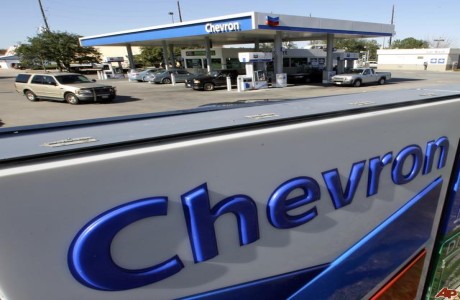A leak from a shallow water crude oil pipeline in the Main Pass Area of the Gulf of Mexico has led Chevron to shut down its offshore Louisiana Main Pass pipeline network, the company said on Tuesday.
Chevron has also shut its Cypress line, the company said.
About 15,000 barrels per day (bpd) of crude oil production was shut in due to the pipeline leak, Chevron said. The company said late on Tuesday it will resume partial production within 24 hours.
Chevron did not reply to several requests for additional information about the leak and its operations in the Main Pass Area.
Carol Fagot, a spokeswoman at the Federal Bureau of Ocean Energy Management, Regulation and Enforcement (BOEMRE), said the agency was “aware of the report and looking into it,” without offering further details.
Both the U.S. Coast Guard and the Louisiana Oil Spill Coordinator’s Office said they had not been informed of a leak off the coast.
Chevron has two offshore platforms in the Main Pass 299 block, according to the company’s website. The site is located in shallow waters about 40 miles east of Venice, Louisiana, and has produced heavy oil, natural gas and sulphur, according to government records.
Chevron said the leak was from a 10-inch riser pipelines in Main Pass Block 299. Riser pipelines normally carry crude from the seabed to production platforms.
Chevron also shut its line known as Cypress since “Main Pass is the only connecting pipeline system currently providing volumes into Cypress,” the company said.
The Cypress pipeline feeds a crude terminal known as Empire on the Mississippi River in Louisiana, delivery point for cash crude Heavy Louisiana Sweet. Empire usually handles between 230,000 and 275,000 barrels a day, Chevron’s website said.
The Empire terminal was still operating, a trade source said, although it wasn’t clear whether flows into the terminal had been disrupted.
The Gulf of Mexico was the site of the worst-ever U.S. offshore oil spill last year when BP’s Macondo well released more than 4 million barrels of crude from a blown out well offshore Louisiana.



